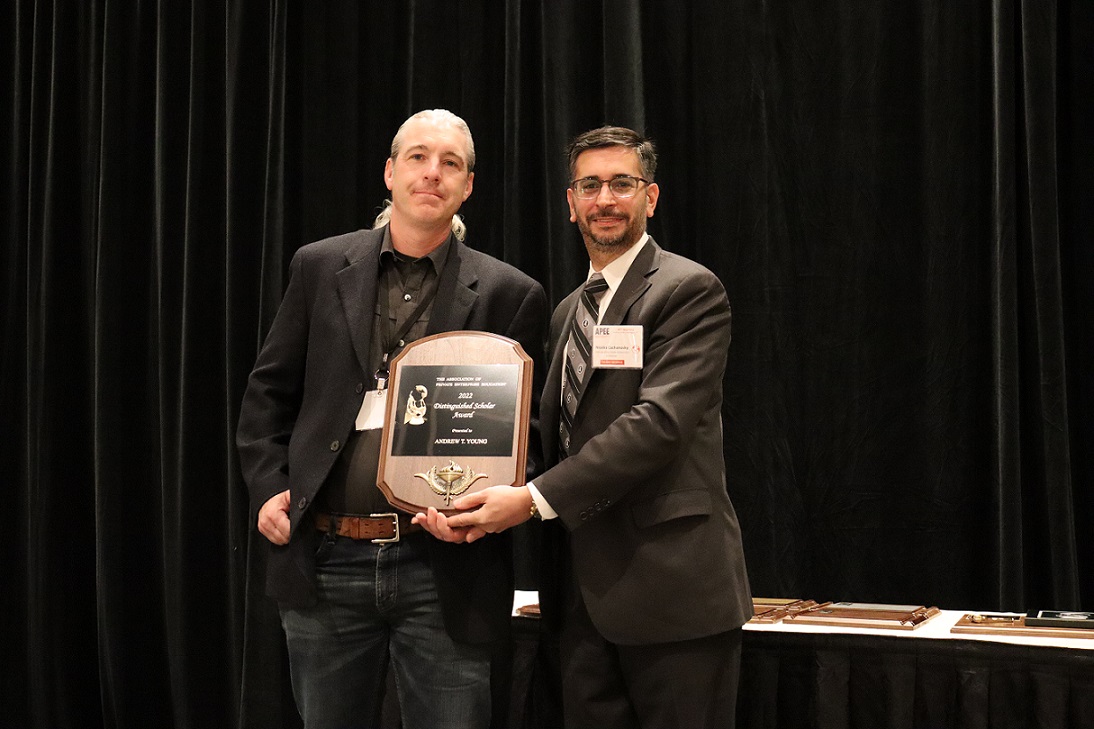Research
Latest News
December 2022

Latin American Research Review
The Influence of Pinochet on the Chilean Miracle
Edwar E. Escalante
The author compares Chilean economic outcomes during Augusto Pinochet's autocracy
with those in a synthetic counterfactual consisting of a weighted average of countries
with similar characteristics. The analysis finds that Chilean income per capita did
not improve significantly more than it would have in the absence of Pinochet's coup
until several years after the coup, and the autocracy's economic growth underperformed
compared to the counterfactual during this period. This brings into question the effectiveness
of Pinochet's regime to enhancing economic growth and the narrative of the Chilean
miracle.
Journal of Economic Behavior & Organization
The Political Economy of Complexity: The Case of Cyber-Communism
Vicente Moreno Casas, Victor I. Espinosa, and William Hongsong Wang
The authors question the feasibility of cyber-communism and central planning from
a complexity perspective. They emphasize some problems central planning faces: self-reference,
noncomputability of optimal points, reflexivity, and less adaptive capacity. The authors
conclude that cyber-communism conflicts with a complexity political economy based
on cultivation, and that cyber-communist planning is not realistic, ultimately meaning
that technology cannot allow an effective socialist planning.


International Review of Law and Economics
Consent or Coordination? Assemblies in Early Medieval Europe
Andrew Young
The author provides a coordination model of assemblies that provides a compelling
account of the early medieval assemblies in Western Europe. Similar to previous literature
regarding modern de jure constitutions, he argues that assemblies allowed monarchs to provide a focal point
around which they could coordinate their leading men. There was relatively little
meaningful bargaining at these assemblies; rather, monarchs provided ceremony and
spectacle meant to focus their leading men on their agendas.
November 2022
Economics Letters
Seigniorage Payments and the Federal Reserve's New Operating Regime
Bryan Cutsinger and William Luther
The authors consider the Federal Reserve's remittances to the Treasury from 1947 to
2021 and extend the estimates of seigniorage by Barro (1982) and Jefferson (1998)
to assess the net effect of the Fed's new operating regime on seigniorage payments.
Most measures indicate that the Fed's new floor system has increased the level of
seigniorage and its relative importance in total tax receipts. The measure of seigniorage
used determines whether seigniorage from domestic and foreign holdings of U.S. currency
has become more or less important as a source of revenue.

September 2022

European Journal of Political Economy
The Causal Effects of Rule of Law & Property Rights on Fiscal Capacity
Robin Grier, Andrew T. Young, and Kevin Grier
The authors explore the possibility that governments build fiscal capacity in part
by making a credible commitment to strong property rights under the rule of law. They
identify large, sustained jumps in scores on measures of legal system and property
rights quality and investigate if they produce increases in fiscal capacity. The authors
find sustained improvements in property rights do not cause increases in any of our
fiscal capacity measures.
August 2022
The Independent Review
The Ethics of Doing Business with Illegal Immigrants
Benjamin Powell and Jason Brennan
The authors show that, in light of the overall economic consequences of immigration,
every major ethical theory finds that existing immigration restrictions are unjust.
Immigration restrictions do not fall into the special circumstances where philosophers
have argued that there is an independent duty to obey the law. Thus, they conclude
that it is ethical for people and businesses to interact with illegal immigrants in
violation of the law.
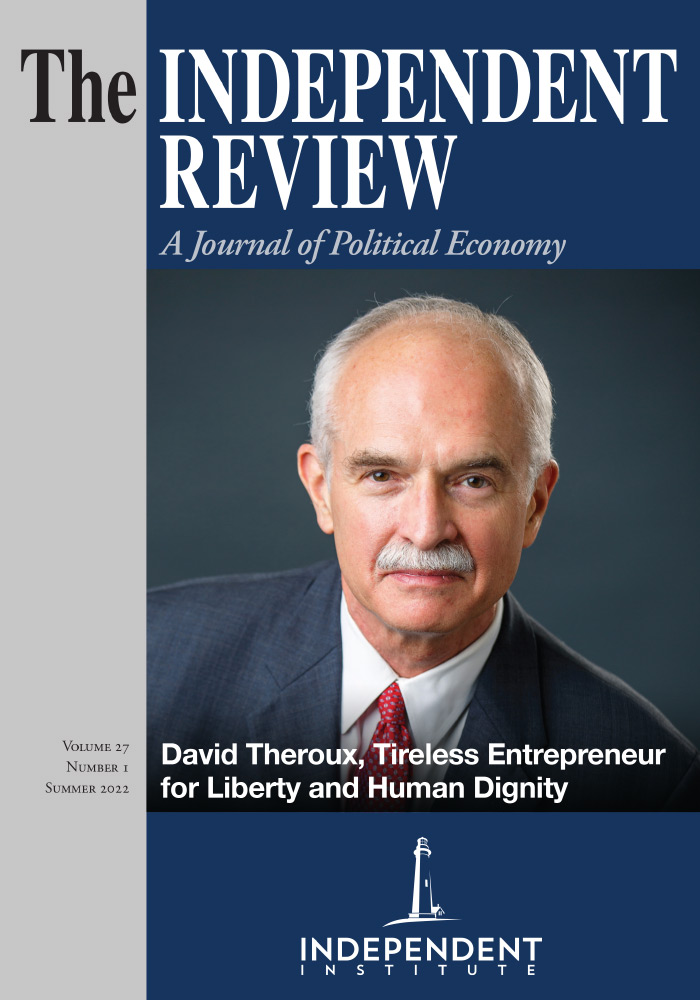

Journal of Institutional Economics
Sorting Out the Aid-Corruption Nexus
Jamie Bologna Pavlik and Andrew T. Young
The authors employ matching methods to explore the relationships between foreign aid
flows and corruption in recipient countries. Data are drawn from recipients of foreign
aid for the 1996–2013 period. They find no compelling evidence of an effect running
from corruption to aid flows. Furthermore, point estimates imply that corruption reforms
lead countries to receive less aid. Alternatively, they find that, over a 10-year
horizon, a sustained increase in aid leads to more corruption in a recipient.
Journal of Economic Behavior & Organization
Can Dollarization Constrain a Populist Leader? The Case of Rafael Correa in Ecuador
Nicolás Cachanosky, Alexander W. Salter, and Ignacio Savanti
Rafael Correa's presidency in Ecuador (2007 – 2017) exemplifies left-leaning populist
regimes in Latin America. However, there is a key difference: Ecuador is a dollarized
economy. This removes the possibility of fiscal dominance over monetary policy as
is common in populist regimes. The authors study how dollarization constraints a populist
leader. They discuss the incentives of a budget constraint immune to monetization
and the failed attempt to launch a national digital currency.

July 2022

Southern Economic Journal
Does Aid Cause Changes in Economic Freedom?
Jamie Bologna Pavlik, Benjamin Powell, and Andrew T. Young
The authors examine whether aid affects recipient countries' economic freedom. Their
study employs matching methods to better estimate the causal relationship between
aid and economic freedom. They find that there is no meaningful causal impact of overall
aid on recipient countries' economic freedom. There is some [quantitatively modest]
evidence that, specifically, large and sustained increases in “governance-specific”
aid lead to increases in economic freedom.
Public Choice
Evolution, Uncertainty, and the Asymptotic Efficiency of Policy
Brian C. Albrecht, Joshua R. Hendrickson, and Alexander W. Salter
The authors present a model of politics as an evolutionary process, which yields three
main results. First, the political process selects for efficient policies in the long
run. Second, potential inefficiency declines when organizing interest groups becomes
less costly. Finally, policies that appear to be inefficient in a static analysis
can be efficient once economists consider the dynamic nature of political decisions.


Public Choice
Insuring Legislative Wealth Transfers: Theory and Evidence
Bryan Cutsinger, Alexander Marsella, and Yang Zhou
The authors argue that uncertainty on the durability of wealth transfers between special
interests could be mitigated by an insurance mechanism that compensates interest groups
if other durability-enhancing mechanisms fail. To illustrate how such an insurance
mechanism works, they rely on the 2014 settlements between the Department of Justice
and Bank of America and Citigroup, respectively, which required both banks to donate
to housing-counseling organizations whose funding Congress had reduced three years
earlier.
Journal of Financial Economic Policy
The Government Spending Multiplier in Latin American Countries: Does the Institutional
Environment Matter?
Rafael Acevedo, Jose U. Mora, and Andrew T. Young
The authors aim to estimate the government spending multiplier using Latin American
panel data from 19 Latin American countries from 2000 to 2018. The estimates are conditional
on the extent of openness, capital mobility, and economic freedom. Based on the results,
the latter is important: the less economically free a country, the larger its spending
multiplier. Lower economic freedom in Latin American countries can help to account
for their large spending multipliers. In particular, restrictions on international
trade are positively associated with multipliers, even while controlling the trade
share of GDP.
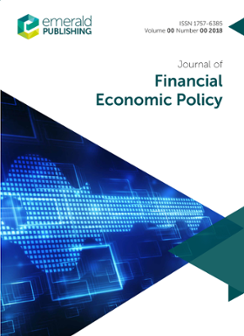
June 2022
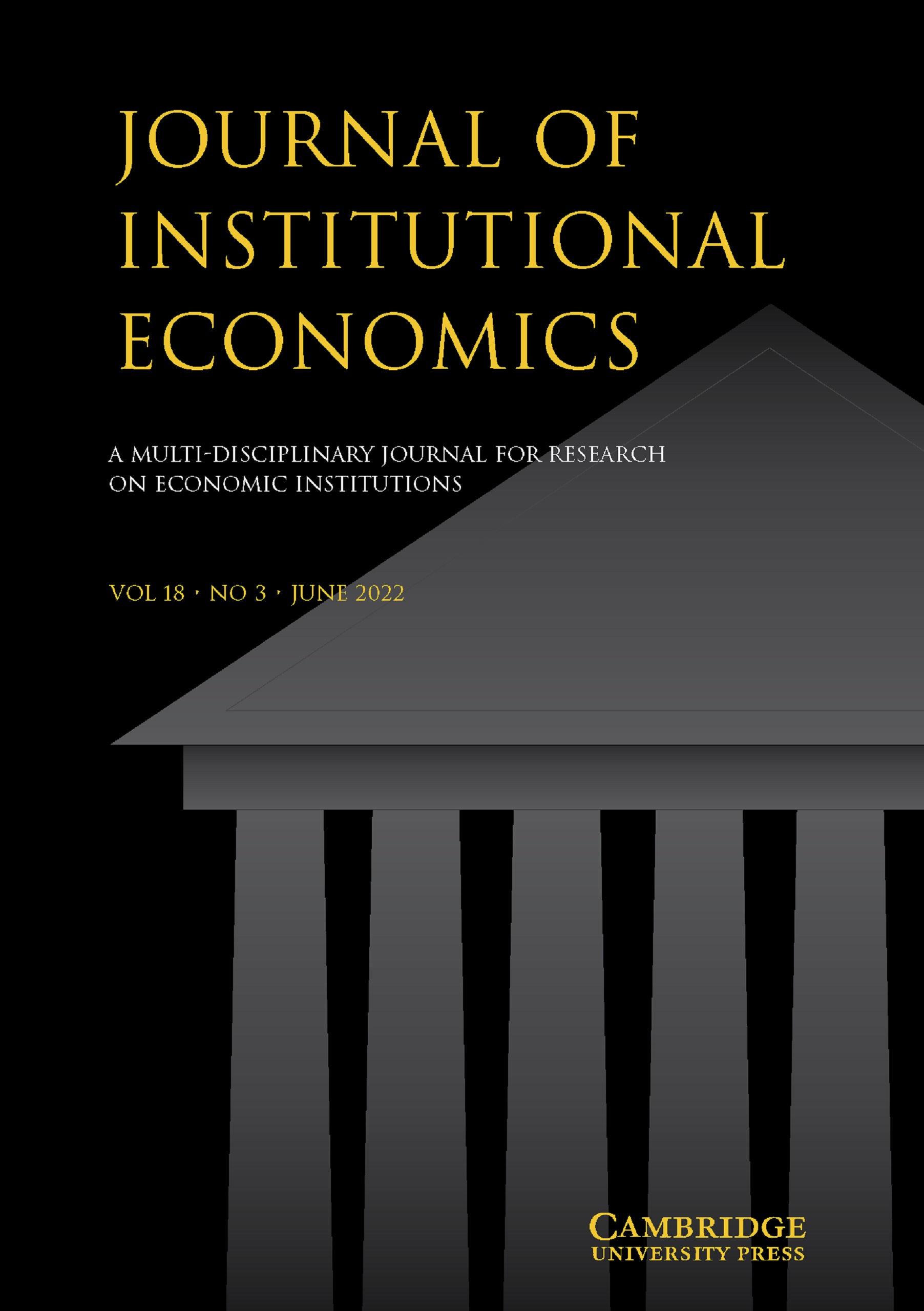
Journal of Institutional Economics
Symposium: Institutional Analysis, Market Processes, and Interdisciplinary Social
Science
Daniel J. D'Amico and Adam G. Martin
The editors argue that the looser mathematical formalism of heterodox economic approaches
provide a unique opportunity for interdisciplinary engagement to investigating and
understanding social institutions, outcomes, and complex phenomenon. Scholars with
relevant research experiences were invited to investigate a potential union between
the more cultural and anthropological disciplines, on the one hand, and the less formalized
models of rationality common across heterodox approaches, on the other.
Read all the Symposium papers in the Journal of Institutional Economics, Volume 18, Issue 3.
May 2022
European Review of Economic History
The Wild Card: Colonial Paper Money in French North America, 1685-1719
Bryan Cutsinger, Vincent Geloso, and Mathieu Bédard
The authors illustrate that the applicability of a theory of the price level depends
on the effective enforcement of legal tender restrictions by examining the case of
the first French experiment with monnaie de carte, or playing card money, in its colony of Quebec between 1685 and 1719. Their empirical
analysis of the notarized transactions observed indicates that the increased enforcement
of legal tender restrictions and the redemption plan in place after 1705 corresponds
to statistically and economically significant increases in the share of transactions
involving the playing card money, which supports their argument that the legal tender
restrictions contributed to rising prices in the colony.

March 2022

Public Finance Review
The Effect of Presidential Particularism on Economic Well-Being: A County-Level Analysis
Jamie Bologna Pavlik and Maria Tackett
Does it pay to be a locale of political importance? Political business cycle theory
predicts that the executive has an incentive to manipulate policy to increase the
chances of their party remaining in office. The authors explore how the funding affects
the well-being of an area by estimating the effect of presidential particularism on
governmental transfers and (productive) income per-capita using county-level data
from 1993 to 2012. They find that transfer payments tend to be higher and income lower
in counties that vote for the current administration. Results hold when examining
the subset of counties that only voted for a single party throughout the entire sample
where the treatment (whether the county voted for the current administration) is largely
exogenous to the county in question.
Journal of Economics, Race, and Policy
The Political Economy of the Anti-Chinese Movement in California in the Nineteenth
Century
Linan Peng
The author develops a model to study the anti-Chinese movement in California by drawing
on the previous literature. The model suggests that adverse economic conditions in
the labor market, direct competition between Chinese workers and native workers, well-organized
native labor, and durable legislation can explain why there was a three-decade time
lag between the first wave of Chinese agitation and the passage of the exclusion act.

February 2022

European Journal of Law and Economics
Does Rigidity Matter? Constitutional Entrenchment and Growth
Justin Callais and Andrew Young
The authors estimate the effects of increases in constitutional rigidity (i.e. entrenchment)
on subsequent economic growth. Employing matching methods and examining the full set
of available treatments, they find little evidence to suggest that constitutional
entrenchment has any relationship to economic growth. However, when they exclude autocracies
and treatments associated with coups, evidence suggests that greater entrenchment
harms growth in countries that are relatively democratic and politically stable.
Rationality and Society
The Peace of God
Andrew Young
The author explores one of the factors that led to the emergence of the Western Europe's
medieval constitution: the Peace of God movement. He argues that the movement, initiated
by Catholic bishops, was fundamentally important to delineating and stabilizing jurisdictional
boundaries, as well as providing them with perceived legitimacy.

January 2022

Public Affairs Quarterly
Proportionality-Preserving Polycentricity
Daniel D'Amico and Adam Martin
Recent social scientific research has generated important insights about the relationship
between institutions and punitive outcomes that are relevant for these dominant punishment
philosophies. The authors survey this evidence alongside a framework that explains
why more centralized and hierarchically managed institutions are associated with harsher
punishments than more polycentric institutions. Centralized criminal justice institutions
thus face a greater justificatory burden than polycentric systems.
European Journal of Political Economy
Love on the Rocks: The Causal Effects of Separatist Governments in Quebec
Vincent Geloso and Kevin Grier
The authors use the synthetic control method to assess the effect of the Quebec's
separatist party being elected in 1976 and 1994. They find that, relative to the control,
both elections of separatist had a small positive effect on economic activity. These
findings suggest that violence could be underappreciated in terms of its importance
in determining the costs of disintegrations. They further find that the size of the
provincial government (relative to GDP) constantly and significantly exceeded the
counterfactual.


Advances in Austrian Economics
Contemporary Methods and Austrian Economics
Daniel D'Amico and Adam Martin
This edited volume examines the relationship between Austrian economics and new social
scientific methods. Do Austrian critiques of the excessive ambitions of formal theory
and empirical measurement still hold water (if they ever did)? Do the findings of
these new approaches bolster or undermine distinctively Austrian theories? How should
we update our views on the relationship between abstract economic theory and empirical
investigations?
November 2021
The Independent Review
What Is a Classical Liberal Constitution?
John Dove and Andrew Young
The authors examine how constitutional-level arrangements, that classical liberal
have favored, influence economic freedom. The results are mixed and highlight the
need for systematic and serious study of real world constitutional data.
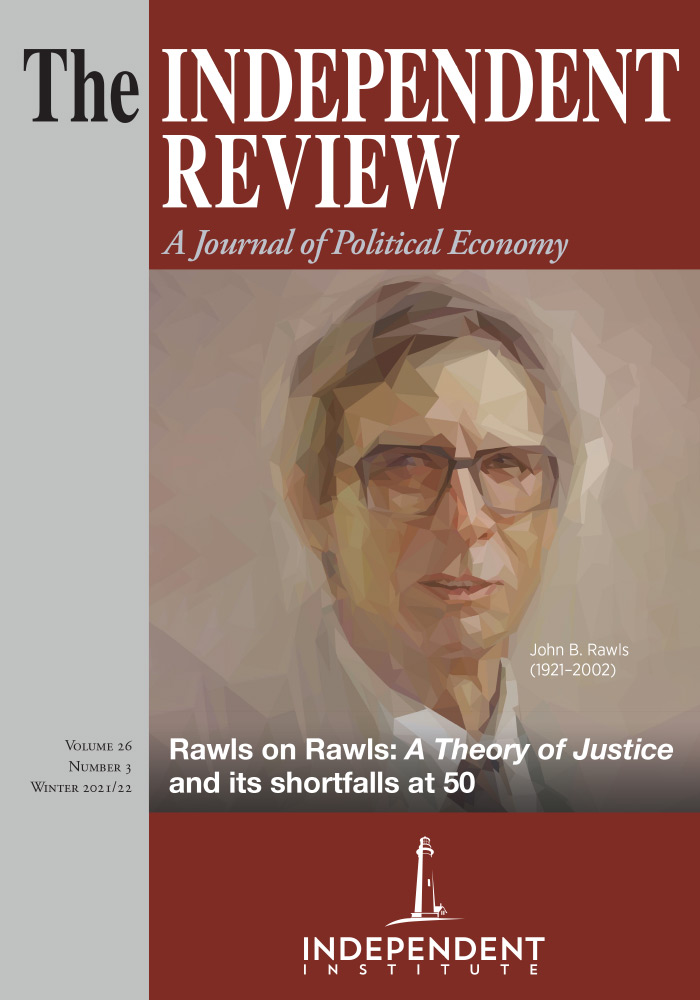

Social Science Quarterly
Breaking Up Is Hard to Do: Lessons from the Strange Case of New Zealand
Kevin Grier and Michael Munger
The authors seek to shed light on the consequences of 'Brexit' by developing the realistic
counterfactual of New Zealand (NZ) "leaving" a de facto customs union with the United
Kingdom in 1973, when the United Kingdom entered the European Economic Communities.
They find that, at choosing NZ as the best-case model for the power yet-to-be negotiated
trade deals and yet-to-be implemented reforms, Brexit is likely to be economically
harmful and the losses will not soon be made up.
The Effect of Sanctions on Economic Freedom
David Lektzian and Gor Mkrtchian
The authors argue alterations of domestic economies due to sanctions tend to lead
to increased state command of the economy and reduced economic freedom. This is because
sanctions create opportunities and incentives that encourage target states and firms
within them to pursue increased state control of the economy.
Social Science Research Network
Free Market Institute at Texas Tech University Research Paper Series
The Free Market Institute has launched its Research Paper Series in the Social Science
Research Network (SSRN). The series includes working research papers authored by faculty,
staff, and graduate students affiliated with the Institute.
Subscribe to our quarterly eJournal here.
October 2021

Contemporary Economic Policy
Does Constitutional Entrenchment Matter for Economic Freedom
Justin Callais and Andrew Young
The authors study how entrenchment - the extent to which constitutions are more costly
to change than ordinary policies and institutions - affects levels of economic freedom.
Even though they report no significant effects on overall freedom, they find some
evidence that entrenchment does lead to smaller government size, more regulation,
and weaker property rights.
August 2021
Journal of Institutional Economics
Laissez les Bons Temps rouler? The Persistent Effect French Civil Law Has on Corruption,
Institutions, and Incomes in Louisiana
Justin Callais
The author seeks to offer a clearer explanation for why Louisiana sets itself apart
from other states in its politically corrupt environment. He argues that the underlying
cause is the historical influence in French civil law, despite occurring over 200
years ago, as it leads to corruption through regulation and centralization of decision-making.

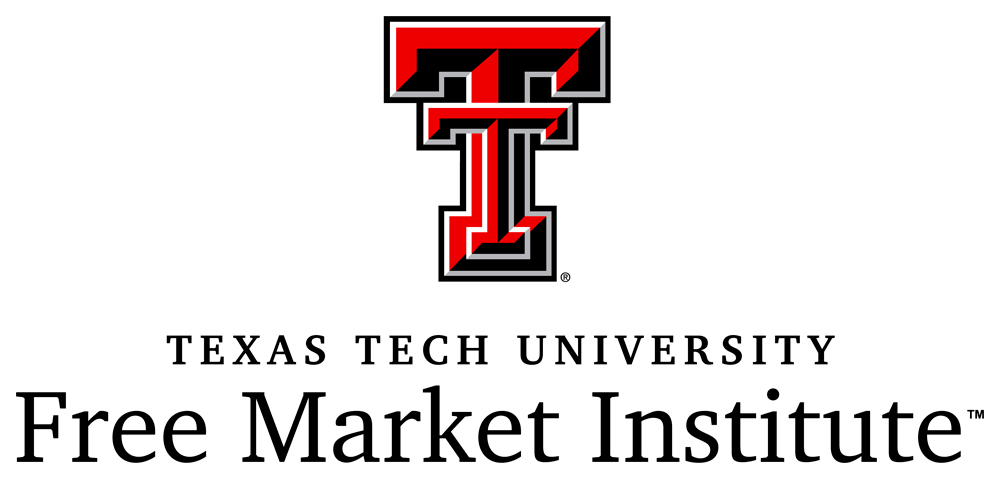
Research Award
Texas Tech Today features FMI Research Fellow Andrew Young for his recent achievement in receiving The APEE 2022 Distinguished Scholar Award.
Read the full article here: Texas Tech Free Market Faculty Member Receives Distinguished Scholar Award.
Research Workshop
April 12 — The Proto-Coasean Insights of Bernard Mandeville – Daniel D'Amico, Director, Stephenson Institute for Classical Liberalism, Wabash College
Research Spotlight

FMI Political Economy Research Fellow co-organized a symposium published in the Journal of Institutional Economics
Read all the Symposium papers here: Symposium on Institutional Analysis, Market, Processes, and Interdisciplinary Social Science
Free Market Institute at Texas Tech University Research Paper Series
The Free Market Institute has launched its Research Paper Series in the Social Science Research Network (SSRN). The series includes working research papers authored by faculty, staff, and graduate students affiliated with the Institute.
Free Market Institute
-
Address
Texas Tech University - Box 45059 - Lubbock, TX - 79409-5059 -
Phone
806.742.7138 -
Email
free.market@ttu.edu

